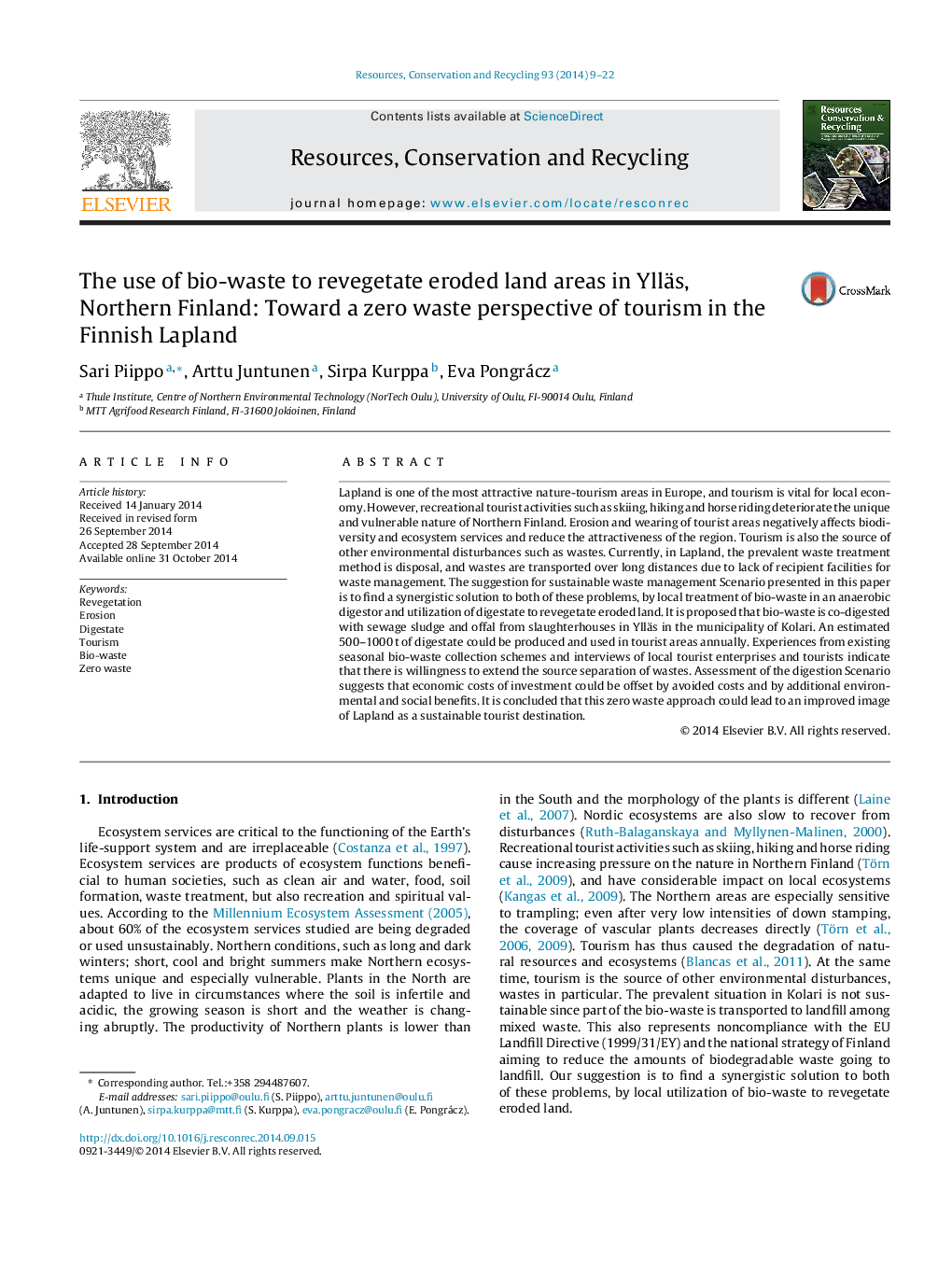| Article ID | Journal | Published Year | Pages | File Type |
|---|---|---|---|---|
| 1062882 | Resources, Conservation and Recycling | 2014 | 14 Pages |
•Erosion and wearing of tourist areas negatively affects biodiversity and ecosystems.•Tourism is one of the major sources of wastes which are disposed.•There is willingness to extend the source separation of wastes in Finnish Lapland.•Local AD treatment of bio-waste and use of digestate for revegetation is suggested.•Zero waste approach can improve the image of Lapland as a sustainable tourist area.
Lapland is one of the most attractive nature-tourism areas in Europe, and tourism is vital for local economy. However, recreational tourist activities such as skiing, hiking and horse riding deteriorate the unique and vulnerable nature of Northern Finland. Erosion and wearing of tourist areas negatively affects biodiversity and ecosystem services and reduce the attractiveness of the region. Tourism is also the source of other environmental disturbances such as wastes. Currently, in Lapland, the prevalent waste treatment method is disposal, and wastes are transported over long distances due to lack of recipient facilities for waste management. The suggestion for sustainable waste management Scenario presented in this paper is to find a synergistic solution to both of these problems, by local treatment of bio-waste in an anaerobic digestor and utilization of digestate to revegetate eroded land. It is proposed that bio-waste is co-digested with sewage sludge and offal from slaughterhouses in Ylläs in the municipality of Kolari. An estimated 500–1000 t of digestate could be produced and used in tourist areas annually. Experiences from existing seasonal bio-waste collection schemes and interviews of local tourist enterprises and tourists indicate that there is willingness to extend the source separation of wastes. Assessment of the digestion Scenario suggests that economic costs of investment could be offset by avoided costs and by additional environmental and social benefits. It is concluded that this zero waste approach could lead to an improved image of Lapland as a sustainable tourist destination.
